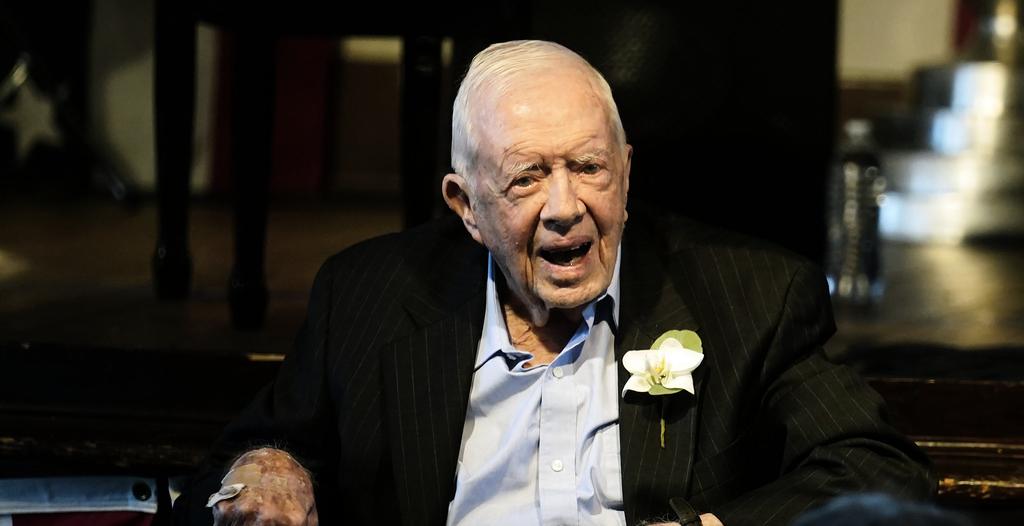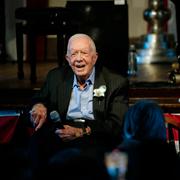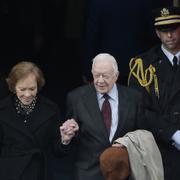Wikipedia (en)
James Earl Carter Jr. (born October 1, 1924) is an American retired politician who served as the 39th president of the United States from 1977 to 1981. A member of the Democratic Party, he served as the 76th governor of Georgia from 1971 to 1975, and as a Georgia state senator from 1963 to 1967.
Carter was born and raised in Plains, Georgia, graduated from the U.S. Naval Academy in 1946 and joined the U.S. Navy, serving in the submarine service. Afterward he returned home, where he revived his family's peanut-growing business. He then manifested his opposition to racial segregation, supported the growing civil rights movement, and became an activist within the Democratic Party. He served in the Georgia State Senate from 1963 to 1967 and then as governor of Georgia from 1971 to 1975. As a dark-horse candidate not well known outside of Georgia, Carter won the 1976 Democratic presidential nomination and narrowly defeated incumbent Republican president Gerald Ford in the 1976 U.S. presidential election.
Carter pardoned all Vietnam War draft evaders. He created a national energy policy that included conservation, price control, and new technology. He successfully pursued the Camp David Accords, the Panama Canal Treaties, and the second round of Strategic Arms Limitation Talks. He also confronted stagflation. His administration established the U.S. Department of Energy and the Department of Education. The end of his presidency was marked by the 1979–1981 Iran hostage crisis, the 1979 energy crisis, the Three Mile Island accident, the Nicaraguan Revolution, and the Soviet invasion of Afghanistan. In response to the invasion, Carter escalated the Cold War by ending détente, imposing a grain embargo against the Soviets, enunciating the Carter Doctrine, and leading the multinational boycott of the 1980 Summer Olympics in Moscow. He lost the 1980 presidential election in a landslide to Republican nominee Ronald Reagan.
After leaving the presidency, Carter established the Carter Center to promote and expand human rights, earning him a Nobel Peace Prize in 2002. He traveled extensively to conduct peace negotiations, monitor elections and further the eradication of infectious diseases. He is a key figure in the nonprofit housing organization Habitat for Humanity and wrote numerous books, ranging from political memoirs to poetry, while continuing to comment on global affairs, including two books on the Israeli–Palestinian conflict, in which he criticizes Israel's treatment of Palestinians as apartheid. Polls of historians and political scientists generally rank Carter as a slightly below-average president, although his post-presidential activities are considered exceptional. He is both the longest-lived president and the one with the longest post-presidency. He is also the third-oldest living person to have served as a nation's leader.



